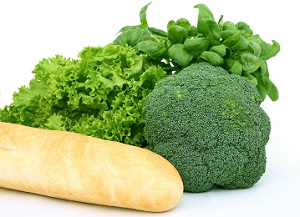The Great Dairy Debate
With National Dairy week being celebrated in February, we are having a deeper look into the 'Dairy Debate' with a series of articles to help you decide if dairy should have a place in your diet. Picture a tasty block of cheese - ready to slice onto crackers; drippings of cheddar - melted onto a slice of toast; or cream covered gateaux - just begging to be indulged. 
At some point in time the majority of us have been tempted by something rich in dairy to satisfy our hunger or mood. And why not - with the variety of well made, tasty produce available, who could resist? As children we are positively encouraged to consume milk and dairy foods because we are told that dairy is a good source of calcium that is needed to grow healthy teeth and bones. However, later in life we start to get conflicting reports as to whether we should be eating more or cutting back. We find ourselves being targeted by some health officials to cut down on the fat in our food and advised to consume less dairy or find low-fat alternatives to butter and cheese. So where do we stand on what dairy to include and do we need it in our diets at all?
When we think "dairy" do we assume it only contains a source of calcium? Is it the calcium or the fat that we need to reduce? One of the arguments we have heard against eating dairy products is that it is unnatural. We humans are, by and large, the only animals to drink the milk of other species and to drink milk at all past infancy. To some, this seems like a perversion of our nature. Others feel strongly that consuming dairy products is unfair to cows or that keeping cows is an irresponsible use of land and other resources.
The safety of dairy as a calcium source has been questioned recently due to some methods and the need to quickly produce more milk and dairy items - in a more cost effective way - may have compromised the quality of what we are getting. So should we be looking for other alternatives to full-fat milk and hard cheese; forsaking our double cream and searching for lactose-free, reduced fat, dairy-free substitutes? It has been suggested that with people eliminating dairy from their diets they could be making themselves even less tolerant and likely to react if dairy is accidentally consumed.
Some even suggest that consuming dairy can cause osteoporosis - as opposed to protecting against it. We need calcium in our diets - from whatever source we choose.
So what is calcium and where do we get it?
Calcium is a mineral that we need to help build strong bones and teeth, regulate muscle contraction and assist the normal clotting of our blood. Checking the guidelines on the amount of calcium recommended, relating to age and gender, is a good starting point to monitoring your daily intake. Mention calcium and the most popular answer is that is comes from milk and dairy produce because they contain a high amount of calcium and are easily sourced, meaning you would not have to eat too much to achieve your needs. The amounts of calcium per dairy item can vary greatly but as a guide, one cup of milk can contain about a third of the daily adult requirements, as opposed to half a cup of frozen yoghurt only containing 10% of what you may need. Similarly, an ounce of hard cheese could give you up to a quarter of your RDA but a single serving of cottage cheese could contain half that amount.
Lactose Intolerant?
If you are intolerant of lactose or choose not to consume anything that is derived from animal milk then you will need to look at the alternative sources to get the recommended calcium intake advised. 
So what do we do?
If you are able to eat dairy and use milk in your daily diet then take the time to look at where your produce comes from and get as much information on the benefits and recommended allowances that you need to maintain health and balance. There are some great dairies and dairy producers available today, who not only make all their own produce but actually raise their live stock in a more natural environment. This in turn is reflected in the quality of the items they have available to sell. Why don't you take a look at your local farm shops and see what they have in stock. Visit bigbarn.co.uk to see who is available in your area. From milk to cream, cheese to ice-cream, more is available at a reasonable cost for the quality of what you are getting. Even in your local supermarket you will find a more varied selection of milk producers, with new ranges in the cheese section and smaller producers competing alongside the larger manufacturers.
Look in the cheese aisle for produce from companies such as: -
Lubborn Cheese, the sole makers of Somerset Brie, Somerset Camembert and Capricorn Goats Cheese, all traditionally ripened for full flavour and a creamy texture. lubborn.co.uk
Lynher Dairies Cheese Company Ltd - producers of Yarg Cornish Cheese - a delicious semi-hard cheese from Cornwall lynherdairies.co.uk
Cropwell Bishop Creamery - makers of Stilton cheese. cropwellbishopstilton.com
Whether you decide to increase, decrease, remove or include milk and dairy in your daily diet; it is always worth remembering that moderation, balance and knowledge are your best friends. So when it comes to deciding just what you want to eat and how often you want to eat it; do a little bit of background research or 'Google' away. You will be rewarded with, sometimes too little but often a lot more, information than you expected.
What are your views?
As always we want to hear from our readers about all the topics we cover and the Dairy Debate is definitely one that has sparked some lengthy discussions here at The Source.
Are you a dairy eater or a lactose free dieter?
Do you choose to eat dairy or is it a much missed restriction due to intolerance or belief?
Are dairy farmers getting a raw deal?
Do you have a local dairy and farm shop you would recommend?
What are your thoughts on "cow's milk for calves - breast milk for our babies"?
Is it something that interests you and if it does what alternatives do you use?
How easy is it to get the right amount of calcium in a dairy free diet?
Follow our debate
Lactose Intolerance: A deeper look into how lactose affects your body.
Strawberry Dipped In CreamCheese On Market by Petr Kratochvil
Green Vegetables © Mjutabor | Dreamstime.com